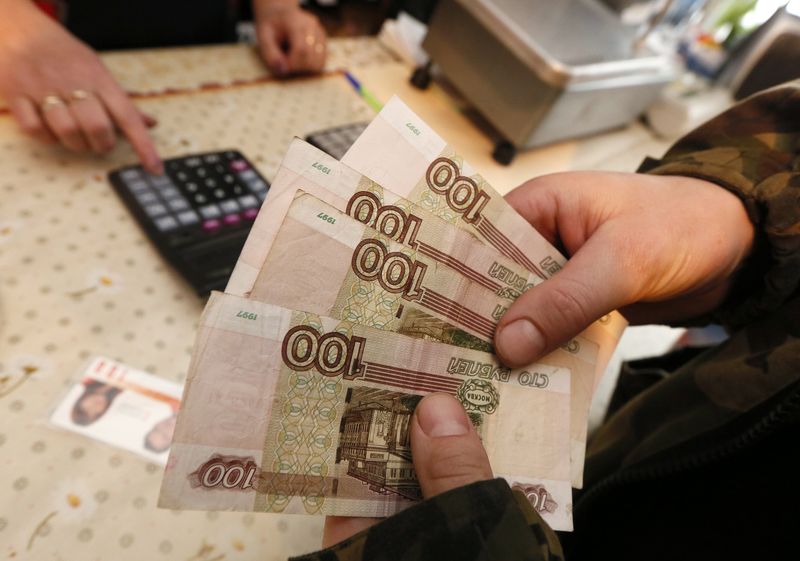LONDON (Reuters) - Russian debt insurance costs and yield spreads on sovereign dollar bonds are near six-year highs, surpassing those of countries such as Pakistan whose credit ratings are several notches lower.
Analysts said on Monday that last week's shock interest rate cut had worsened the situation by weakening the rouble, making debt repayment costlier for many companies and raising inflationary pressures.
Russia is rated Baa3 by Moody's and BBB- by Fitch, their lowest investment-grade ratings, while Standard & Poor's cut its rating to a "junk" grade BB+ last week.
But markets have for months treated Russia as being as risky as junk and now its credit default swaps (CDS) are well above those of many far weaker, politically unstable sovereigns.
Bond investors typically use CDS to insure against non-payment of debt, but they are also used as a proxy to gauge how risky an entity is, which is why there is a close relationship between credit ratings and CDS. The higher the CDS spread, the riskier the credit is deemed to be.
Russian CDS are at 636 bps compared to around 400 basis points for Lebanon -- rated B-/B/B2 -- and 450 bps for Pakistan, rated B-/Caa1.
Western sanctions and falling oil prices have raised fears for Russian companies, many of which could require sovereign aid to repay debt. That in turn has raised debt insurance costs for the sovereign.
"There has been a deterioration of fundamentals but on a level basis Russia is being treated as a distressed credit," said Salman Ahmed, global debt strategist at Lombard Odier.
"If you match it with fundamentals it looks overdone but for pressure to ease, two things must happen -- oil prices and geopolitics must stabilise."
In terms of bond yield spreads -- the premium investors demand to hold a country's debt relative to U.S. Treasuries -- only nine credits listed on the EMBI Global bond index trade at spreads higher than Russia's 700 bps <11EML>.
Pakistani spreads are at 550 bps, Lebanon trades at 450 bps while Nigeria, another oil-reliant, politically unstable economy trades at 577 bps over Treasuries.
